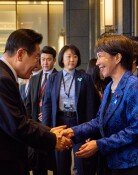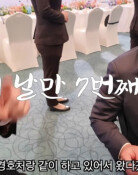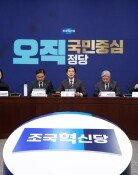The people are not guinea pigs
The government said that separating the professional roles of doctors and pharmacists -- namely, prescribing medicine and dispensing it, respectively -- would not impose an additional financial burden on the public. The mistaken projection was based on the assumption that the inconvenience of visiting the hospital and then going on to the pharmacy would make for shorter lines at hospitals and thus reduce outlays for medical purposes. Soon after the separation plan was implemented it became clear that the cost of medical services had snowballed to the point that an additional 1.5 trillion won investment was required. It also was reported that the medical insurance service would run up a 4 trillion won deficit this year.
The National Health Insurance Corporation has to pay more for hospital and pharmacy bills; medical fees were tripled to placate discontented doctors; individual patients were also required to pay more than before. Not only the community medical insurance associations but the entire medical system is poised to go bankrupt. The people are perplexed and disheartened at the worsening situation. A public outcry has arisen over why the government had no idea what was in store after the ill-conceived separation of roles -- which became a fiasco only seven months after its implementation.
The division of roles caused an additional burden on taxpayers of three trillion won. Risks of misuse or excessive application of antibiotics have not lessened. What is the good of enforcing the separation scheme at the cost of inflicting enormous pain and loss upon the citizens because of repeated strikes by doctors?
Visitors to hospitals are increasing and the abuse of antibiotics remains unabated, largely because citizens are used to it. Policymakers failed to take this into account, thus creating unrealistic expectations. Positive results from the separation may materialize over the long term. But government authorities were unable to anticipate and prepare for the ills of excessive administration of medical care by hospitals, collusion between clinics and dispensaries and padded medical bills. There is no excuse for failing to foresee these eventualities and thus draining the medical insurance coffers.
Media critics warned of the lack of preparedness before the separation took effect. There was a tendency to reject the criticism as opposition to the overall reforms undertaken by the government. Advocates of separation were wont to accuse the media of picking holes with no good reason.
It is the citizenry that has to pay for the failure of public policies. A public health program that was aimed at improving the people`s health and promoting social well-being through the redistribution of income seems to have only invited massive social chaos and added to the financial burden on taxpayers.
Stopgap measures like hiking insurance premiums whenever the need arises are no longer in order. The government ought to apologize to the people and account for its failed policy. A review of the basic framework of the medical insurance program should be attempted in order to hammer out comprehensive and fundamental countermeasures to ensure proper medical service for the people.







